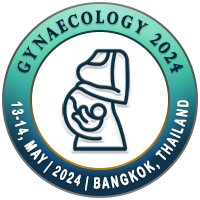
Sergey Sergeev
IVF and Genetics Center, RussiaTitle: Deep learning neural network model for predicting clinical pregnancy outcomes in in vitro fertilization protocols
Abstract
The increasing prominence of neural networks and AI models across diverse fields in medicine plays a pivotal role in extracting complex dependencies from data, making predictions, and aiding decision-making processes. In IVF, it is essential to conduct additional analyses and modeling of protocol data, especially embryological components, to enhance outcome predictions for the cycle and to develop personalized highly effective medical care.
Developing a Deep Learning Neural Network (DNN) Model: Integration of KPI data and KPI Score correlations into the DNN with 20 clinical and laboratory parameters for pregnancy prediction.
Model Training and Performance: Training on a comprehensive dataset from 2013-2023, with 3858 embryo transfer cases used for the model with implementation using the KERAS library for the model development.
Results of Validation and Specificity: Validation across 10 randomly shuffled data frames, demonstrating a 96.8% specificity and 63% accuracy in predicting clinical pregnancy. Occurrence of false-positive predictions - 15.5%. Average model accuracy of 67.9%, SD 5.4%, maximum accuracy of 83.1%. Further model refinement through additional training on a new dataset from 2018 to 2023 (1600 protocols), resulting in an average accuracy of 85.5% and a maximum cross-validated accuracy of 88.6%. Evaluation of model errors through the analysis of 168 protocols with PGT-A, revealing a 27% error rate in predicting clinical pregnancy. Superiority of the model's predictive accuracy (85.5%) compared to literature-reported expert predictions based on clinical and laboratory parameters (51%, range 43–59%). Model has accuracy and reproducibility comparable to state-of-the-art models in time-lapse imaging.
Conclusion: The developed model exhibits robust predictive capabilities in clinical pregnancy outcomes, surpassing traditional models of ML, offering potential applications in quality control as a tool for remote monitoring of IVF department performance and serving as a valuable quality control and decision support in IVF clinics.
Biography
Sergey Sergeev, PhD in embryology and developmental biology from Moscow State University and senior clinical embryologist in the European Association of ESHRE. He has been an Embryologist and Lab Director at the IVF and Reproductive Genetics Center in Moscow, Russia since 2008. He is an Embryology lab supervisor at LLC “Indigo Invitro”, Georgia, Tbilisi, LLC “Persona-clinic”, Republic of Kazakhstan, Almaty. He acts as an expert in the creation of new hardware and software systems for identification and witnessing of materials in the laboratory, automatic calculation of key performance indicators and data processing, internal and external quality control, risk management systems and expert external audit and data analytics.

